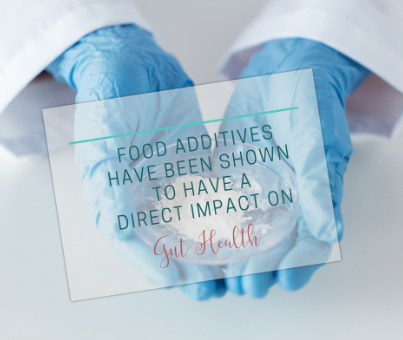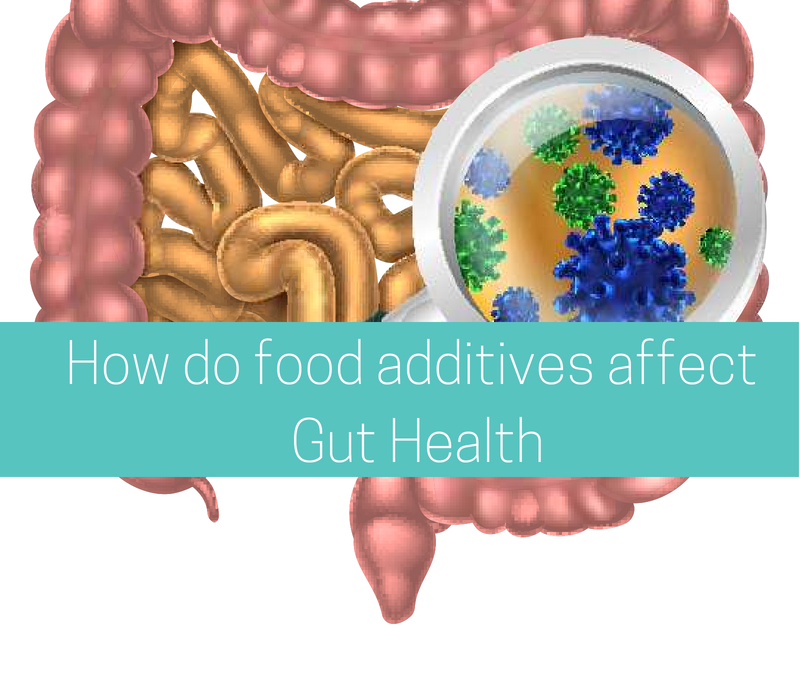Do food additives affect gut health?
Let’s take a look at whether food additives affect gut health.
Our kids are suffering more and more from allergies, food intolerances, low energy, fatigue, obesity, poor immune health and mental & behavioural health issues such as ADHD, anxiety and depression.
Now, more than ever before, we need to take a critical look at the food we are feeding our kids and the impact this is having on their health. If we don’t pay attention to what the food manufacturers are adding to the foods they market to our kids, then we may risk long term health problems that could be avoided.
Here’s some scary statistics on the health of children in Australia
Asthma affects 35% of our children – 3rd highest in the world
1 in 6 children suffer with eczema
1 in 10 children have a food allergy
25% of children are obese
Thousands of children are prescribed antidepressant medications each year
At the core of all this is the health of our gut.
The gut is the foundation to a healthy body, brain, immune and hormonal system.
It is well documented that many food additives can have adverse effects on children, such as ADHD and asthma, but how do food additives affect gut health?
The number of additives used in foods is increasing every year, and you only need to walk into a supermarket to see we are inundated with messages of “health” blaring at us from brightly coloured packages making promises that your child will love it and it’s a perfect lunchbox ‘treat’.
When a typical child’s lunch box can contain up to 40 additives, it’s time to take a critical look at what this is doing to their gut health.
In a number of recent studies, food additives have been shown to have a direct impact on the microbes that inhabit our gut.

These microbes are responsible for many different processes within the body including the production of serotonin (our happy hormone), assisting in the breakdown of food for absorption, the production of essential nutrients such as enzymes, B vitamins and Vitamin K, minerals and polyunsaturated fatty acids and managing our stress response.

In a recent study two commonly used emulsifiers — Polysorbate 80 and Carboxymethylcellulose – were shown to have a direct negative effect on the gut microbiome.
Polysorbate 80 (433) is listed as “best avoided” on the Chemical Maze app and lists “may be contaminated with the carcinogens dioxane and ethylene oxide” and “prohibited in foods for infants” as warnings. This additive is commonly used in creamy sauces, mayonnaise, margarine, ice cream and smooth chocolate.
Carboxymethylcellulose (468). This additive is listed as “safe for most people” on the Chemical Maze app with potential effects including flatulence, diarrhoea and abdominal cramps. 468 can be found in ice cream, dressing, cheese, icing, toppings, gelatinous desserts, baby formula, lollies, cottage cheese and cream cheese spread.
These additives were found to alter the balance of the gut microbiota causing inflammation which has been directly linked to the development of metabolic syndrome, obesity, hyperglycemia, insulin resistance and chronic colitis. Put simply, food additives affect gut health.
Other food additives including Carrageenan (407), an additive found in many dairy alternatives such as almond and coconut milk, have been found to increase inflammation and intestinal permeability which has been linked to the development of autoimmune diseases.
Carrageenan is listed as “best avoided” on the Chemical Maze app, listing potential effects including gastrointestinal cancer and is linked to inflammatory bowel disease
Another very common food additive, maltodextrin or modified corn or wheat starch is used by pathogenic or “bad” bacteria in the gut to make biofilms.
These biofilms act like the plaque on teeth and protect disease causing microorganisms from your immune defense system.
They can also cause inflammation and prevent the absorption of nutrients through the intestinal wall.

So what is the best way to a healthy gut?
The gut plays an important role in your child’s’ overall health and wellbeing and the connection between good gut health and brain, immune and hormonal function and is clear.
Here are five things you can do every day to improve your child’s gut health.
- Make sure they are eating a wide variety of whole fresh foods.
- A diet rich in whole, fresh foods, including fermented foods, provides beneficial bacteria in our gut with the food they need to thrive as well as providing the nutrients our kids growing bodies need.
- Reduce highly processed, packaged foods and eliminate additives
- By reducing the number of these items in your kitchen, you will automatically be reducing the number of additives they’re eating.
- Outdoor play
- Outdoor play is vital for kids to develop a healthy gut! Being exposed to different microbes in the environment will help them to develop a healthy immune system, reduce their stress levels (yes, our kids get stressed too), and will promote good sleep too.
- Get rid of antibacterial products
- Antibacterial products like hand wash and kitchen spray kill ALL bacteria – even the good ones. Soap and water is all you need to clean hands and a microfibre cloth will take care of most of your household cleaning too.
- Avoid unnecessary antibiotics
- There are definitely times when antibiotics are necessary, sometimes even life saving! But if you are getting a prescription every time your child has the sniffles, then their gut bacteria will be getting wiped out with each dose. Instead, use the above steps to help improve their gut health and this will reduce the number of times they’ll get sick.
Sources:
https://www.ncbi.nlm.nih.gov/pubmed/25869573
http://www.sciencedirect.com/science/article/pii/S0378427412009423
http://ajpgi.physiology.org/content/292/3/G829
https://www.ncbi.nlm.nih.gov/pubmed/22579587
https:/www.ncbi.nlm.nih.gov/pmc/articles/PMC3495619
https://www.ncbi.nlm.nih.gov/pmc/articles/PMC4615306
https://www.ncbi.nlm.nih.gov/pubmed/23251695



 My passion and mission is to work with families to reduce the overwhelm when going additive free. Moving to additive free living can bring back peace, calm and joy to families. I know it's possible and I've experienced it first hand with my 5 boys.
My passion and mission is to work with families to reduce the overwhelm when going additive free. Moving to additive free living can bring back peace, calm and joy to families. I know it's possible and I've experienced it first hand with my 5 boys.



